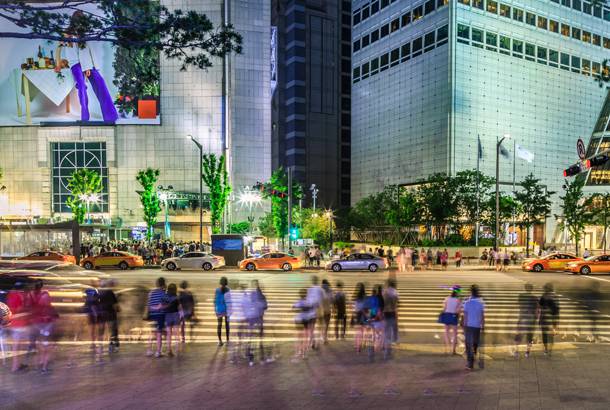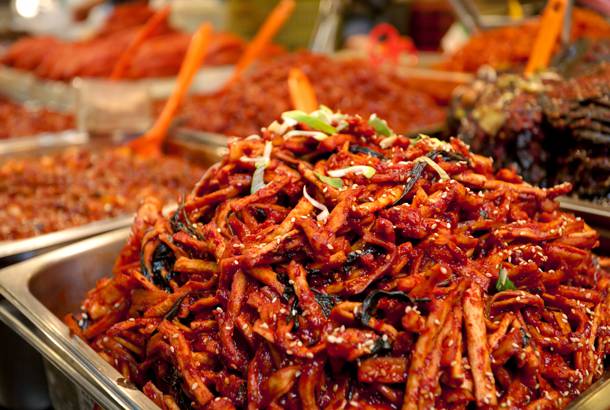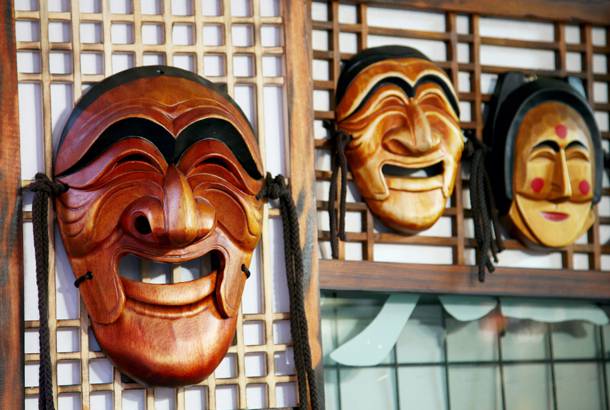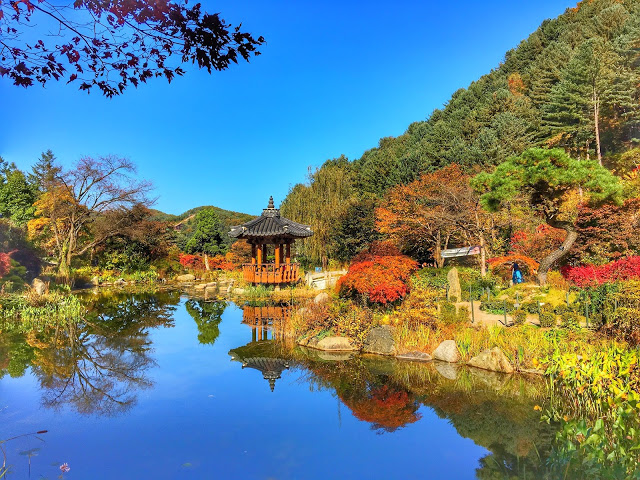Korea – Beautiful Land of Kimchi
Planning a trip to South Korea soon and want to know what to expect? Curious about the food and whether you need to tip? Here find 5 Korea travel tips and useful information covering some aspects of travel to South Korea from currency to WiFi.
Currency
The currency of South Korea is the South Korean Won (KRW). Check out OANDA for the latest exchange rates.
Pound Sterling, US Dollars, Euro and other major currencies can be converted into South Korean Won (KRW) locally, or you can purchase currency in advance. Foreign currency can be converted at foreign exchange banks and other authorised money changers. Most major credit cards can be used in more upmarket restaurants and hotels and ATMs are common throughout larger cities.
Traveller’s Cheques are not recommended as they’re often difficult to exchange and incur high fees.

Food
Largely based on rice, noodles, tofu, vegetables and meat, Korean cuisine is delicious and healthy. Traditionally with main meals, a number of side dishes are served known as banchan, the most popular of these being kimchi. Kimchi is a traditional fermented dish made with vegetables, typically cabbage, radish, onions or cucumbers and flavoured with salt, garlic, ginger, and gochujang – a fermented chilli paste, it can have a very salty and spicy flavour.
A speciality is the Korean barbecue which usually involves beef, pork or chicken. The dishes are typically cooked at the diner’s table on a gas or charcoal grill built into the centre. One of the most popular dishes served is galbi, beef short ribs, often marinated in spices before grilling.
Further dishes worth trying include the mouth-watering bulgogi, marinated beef served with slices of onion and pepper and garlic. Seolleongtang (ox bone soup) is also incredibly popular and is served with slices of beef, green onions and rice or noodles.

For Muslims, you may check with the restaurants if they serve halal food or provide vegetarian food. Here are some phrases you may use when you’re at the restaurant:
- I’m a vegetarian – 나는 채식자입니다, naneun chaesikja imnida
- I can only eat vegetables and seafood – 나는 야채와 해물만 먹을 수있어요 – Naneun yachaewa haemulman meogeul suyiseoyo
- Please remove the meat – 고기/햄 빼주세요 – Gogi pae juseyo
- Does this dish have meat? – 이요리는 고기/햄 들어있어요? – Yi yorineun gogi duro isseoyo
- Please do not put any meat – 고기/햄 넣지마세요 – Gogi neot ji maseyo
Temples
Visitors to temples in South Korea must remove their shoes and headwear before entering. Other than that, they should refrain from taking photos unless they are explicitly given permission. If there is a service going on, be sure to be respectful by remaining silent. You should also bow to Buddha when walking in and out of the temple and exit the temple by backing out so as not to turn your back on Him.

Conservative dress is usually required for those who wish to enter the temple. This is particularly important for women and instead of pointing it is more polite to gesture to something with the whole hand, palm up. When leaving, it is good practice to place a small donation in one of the collection tubs that will inevitably be present. Following these guidelines will help travellers to avoid accidentally offending anyone and to integrate better into Korean culture.
WiFi
Yes. Restaurants, cafes, bars, hotels and even taxis provide free WiFi. There are also hundreds of public spots scattered throughout the Seoul and its parks and plazas. The Korean government set up an initiative to open 10,000 free WiFi spots in South Korea so you can be sure there is plenty of connectivity wherever you are in the city.
Travel by train
Train travel in South Korea is easy and efficient but the price can vary wildly depending on which type of train you choose. The fastest of all the trains is the KTX, which is an express train and will get you from A to B very quickly but requires you to pay a premium fare. Other trains, known as slowpoke trains, include Saemaeul and Mugunghwa trains which are much slower but are much more budget-friendly.
Virtually the entire country is connected by train, making it an excellent option for transferring between cities. Foreigners have the option of purchasing a Korea Rail Pass (KR Pass), which permits unlimited rail travel across all trains, including KTX trains, for however many days it has been purchased for (1, 3, 5, 7 or 10 days). Unfortunately, passengers travelling with this pass are not allocated seats so may be required to stand for the duration of the journey.

The entire source from: https://www.onthegotours.com/South-Korea/Travel-tips-and-useful-info.
South Korea is a great place for a fall or autumn holiday. There are plenty of spots to enjoy the beauty of fall. And even within its capital city, Seoul, you’ll find plenty of parks and open spaces boasting the radiant colours of fall. This itinerary takes you in and around Seoul, then guides you to venture out into the countryside where you’ll see South Korea’s best spots for fall. We hope that this Korea Travel tips will help you have an insightful, enjoyable and safe trip!

